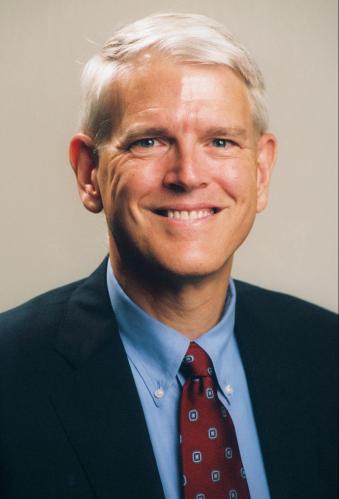Steven Pifer is a nonresident senior fellow in the Arms Control and Non-Proliferation Initiative, Strobe Talbott Center for Security, Strategy, and Technology, and the Center on the United States and Europe at the Brookings Institution, as well as an affiliate of the Center for International Security and Cooperation (CISAC) at Stanford University. He previously was a resident fellow, then senior fellow at Brookings from April 2008-July 2017, a William J. Perry Fellow at CISAC from September 2018-June 2022, and a fellow at the Robert Bosch Academy in Berlin from January-May 2021. His interests are nuclear arms control, Ukraine, and Russia. He has offered commentary on these issues for a variety of print and electronic media. He is the author of “The Eagle and the Trident: U.S.-Ukraine Relations in Turbulent Times” (Brookings Institution Press, 2017) and co-author with Michael O’Hanlon of “The Opportunity: Next Steps in Reducing Nuclear Arms” (Brookings Institution Press, 2012).
A retired Foreign Service officer, his more than 25 years with the State Department focused on U.S. relations with the former Soviet Union and Europe, as well as arms control and security issues. He served as deputy assistant secretary of state in the Bureau of European and Eurasian Affairs with responsibilities for Russia and Ukraine (2001-2004), ambassador to Ukraine (1998-2000), and special assistant to the president and senior director for Russia, Ukraine and Eurasia on the National Security Council (1996-97). In addition to Ukraine, he served at the U.S. embassies in Warsaw, Moscow, and London as well as with the U.S. delegation to the negotiation on intermediate-range nuclear forces in Geneva. From 2000 to 2001, he was a visiting scholar at Stanford’s Institute for International Studies.
His recent publications include “The logic for US ratification of the Comprehensive Nuclear Test Ban Treaty,” (Bulletin of the Atomic Scientists, March 2024); “Russia,” (book chapter for “Arms Control at a Crossroads, Renewal or Demise?,” December 2023), “For a secure and stable Europe, put Ukraine on a definitive path to NATO” (Brookings Talbott Paper, December 2023), and “The Russia-Ukraine war and its ramifications for Russia,” (Brookings Talbott Paper, December 8, 2022). He has authored numerous op-eds and other articles.
Pifer is a 1976 graduate of Stanford University with a bachelor’s in economics.
Affiliations:
- American Academy of Diplomacy, member
- Council on Foreign Relations, member
- Eurasia Foundation, member, advisory council
- National Security Leaders for America, member
-
Areas of Expertise
- Ukraine
- Russia
- Arms control
- Proliferation
- Missile defense
- National security
-
Current Positions
- Affiliate, Center for International Security and Cooperation, Stanford University
- Research Fellow, Robert Bosch Academy
-
Past Positions
- Director, Arms Control and Non-Proliferation Initiative, The Brookings Institution (2009-2017)
- Senior Fellow, Foreign Policy, Center on 21st Century Security and Intelligence, Center on the United States and Europe, Arms Control and Non-Proliferation Initiative, The Brookings Institution (2008-2017)
- Senior Adviser, Center for Strategic & International Studies (2006-2009)
- Deputy Assistant Secretary of State (2001-2004)
- Visiting Scholar, Institute for International Studies, Stanford University (2000-2001)
- Ambassador to Ukraine (1998-2000)
- Special Assistant to the President and Senior Director for Russia, Ukraine and Eurasia, National Security Council (1996-1997)
- Prior assignments as a Foreign Service officer (1978-1995) included postings to the U.S. embassies in London, Moscow and Warsaw as well as with the U.S. delegation to the negotiation on intermediate-range nuclear forces in Geneva.
-
Education
- B.A., Economics, Stanford University, 1976
